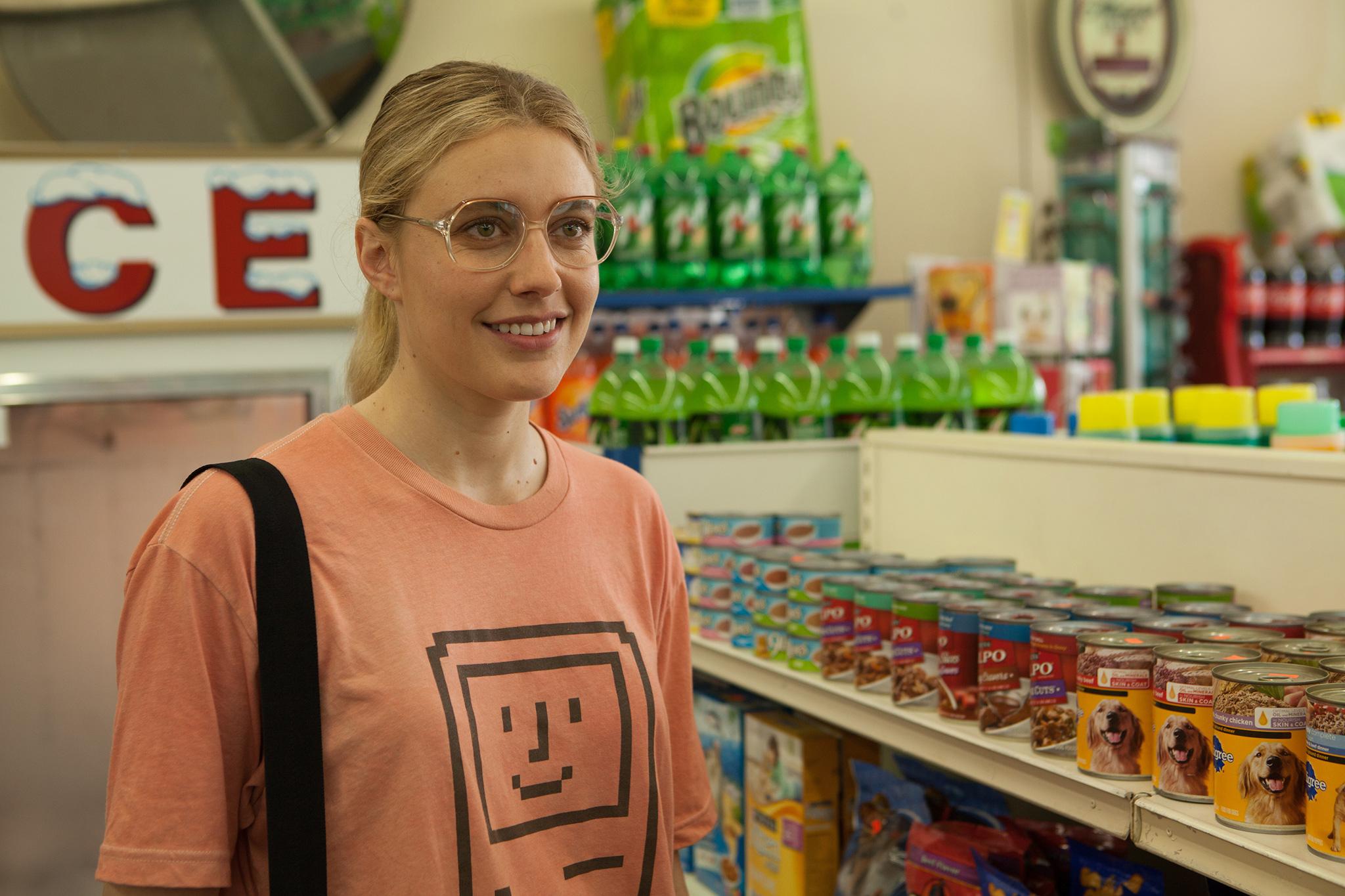Wiener-Dog starring Kieran Culkin, Danny DeVito and Greta Gerwig: 'betrayal, defecation and disappointment – all of life is here'
Visually striking, very funny and with an undertow of pathos, the characters encounter disappointment in all its manifestations

Your support helps us to tell the story
From reproductive rights to climate change to Big Tech, The Independent is on the ground when the story is developing. Whether it's investigating the financials of Elon Musk's pro-Trump PAC or producing our latest documentary, 'The A Word', which shines a light on the American women fighting for reproductive rights, we know how important it is to parse out the facts from the messaging.
At such a critical moment in US history, we need reporters on the ground. Your donation allows us to keep sending journalists to speak to both sides of the story.
The Independent is trusted by Americans across the entire political spectrum. And unlike many other quality news outlets, we choose not to lock Americans out of our reporting and analysis with paywalls. We believe quality journalism should be available to everyone, paid for by those who can afford it.
Your support makes all the difference.Directed by Todd Solondz, 88 mins (15) , starring: Greta Gerwig, Danny DeVito, Ellen Burstyn, Julie Delpy
In the 20 years since his breakthrough film Welcome To The Dollhouse (1995), Todd Solondz hasn’t mellowed in the slightest. He is one of US cinema’s most caustic and satirical filmmakers, a director whose deadpan style is instantly recognisable. He is often accused of misanthropy but he is fearless in the subjects he tackles and is ever ready to probe into the darkest recesses of American family life. Whether dealing with a germ-filled New Jersey adolescence or with the ravages of old age, he is always equally frank and unsentimental.
Wiener-Dog sees Solondz on top form. Some of his other recent features have suffered from such small budgets that they’ve looked very drab and flat. Here, he is working with top producers Megan Ellison (Foxcatcher, American Hustle) and Christine Vachon (Carol), a starry cast and a very accomplished cinematographer (Ed Lachman). The film is visually striking, very funny indeed but has an undertow of pathos. All of its main adult characters are frustrated about the turns their lives have taken. The silent witness to their bad and often ludicrous behaviour is a brown dachshund (or wiener-dog). They project their own fears and prejudices on to the little dog.
In the course of the movie, this very cute and rather forlorn looking mutt goes to several different owners. The first is Remi (Keaton Nigel Cooke), a precocious little boy recovering from an unspecified illness, presumably cancer. The boy’s parents (Tracy Letts and Julie Delpy) can’t stand one another. The dog stubbornly resists attempts to house train it. “Heel, motherfucker!” the father shrieks. In no time at all, it is eating the boy’s granola bars, defecating all over their suburban home, chewing the furniture and entirely disrupting their lives. They dote on it – but are ready to have it “put to sleep” at the first opportunity.
The second owner, who rescues the dog from the vet about to kill it, is Dawn Weiner. Anyone who remembers Welcome To The Dollhouse (in which she was the main character) will know Dawn as a very geeky and unpopular high-school adolescent with greasy black hair. The original actress Heather Matarazzo didn’t want to play the role again so Dawn is now portrayed as an adult in a completely different way by the blonde haired Greta Gerwig. Dawn embarks on a road trip to Ohio with Brandon (Kieran Culkin), a delinquent old high school acquaintance who used to bully her relentlessly and has grown up to become a small time hustler.
Next, the dog is taken in by Dave Schmerz (Danny DeVito), a screenwriter and film professor whose career is in free fall. He’s “old, homophobic, a dinosaur”, openly despised by his students who mock his screenwriting instructions. Schmerz insists that every script must have a “what if” and a “then what” in it
DeVito, too little seen on screen these days, gives a wonderful performance in a role one guesses the writer-director has partly based on himself. He’s a crumpled, woebegone figure, desperately trying to reach his agent and still hoping for a big break although he is all too clearly yesterday’s man. As in his roles in Tin Men or Ruthless People, DeVito manages to be pugnacious and pathetic, defiant and self-pitying at the same time.
The dog’s final owner is an ailing but wealthy old lady (Ellen Burstyn) who calls the dog “cancer” and writes cheques for needy relatives.
In the course of the movie, the characters encounter disappointment in all its manifestations. There is family betrayal, romantic disillusionment and professional underachievement. All four stories hinge on death. For much of the movie, the actors have the same shell-shocked look. They may be losers but Solondz’s shooting style is deceptively graceful. The film, full of lilting and mournful music, has an elegiac feel even at its most absurd moments. The grotesquerie is interspersed with unexpected grace notes. In one scene, Burstyn is serenaded by a chorus of red-haired figures, looking like pre-Raphaelite angels, who represent her younger self and all the roads not taken. The dog itself is the same impassive presence regardless of the chaos contrived by the humans around it. Solondz even throws in an animated “intermission” film which portrays the dachshund as if it is a pioneer, “soldiering on” across a Wild West-style landscape in search of the happy home we know it will never find.
Join our commenting forum
Join thought-provoking conversations, follow other Independent readers and see their replies
Comments